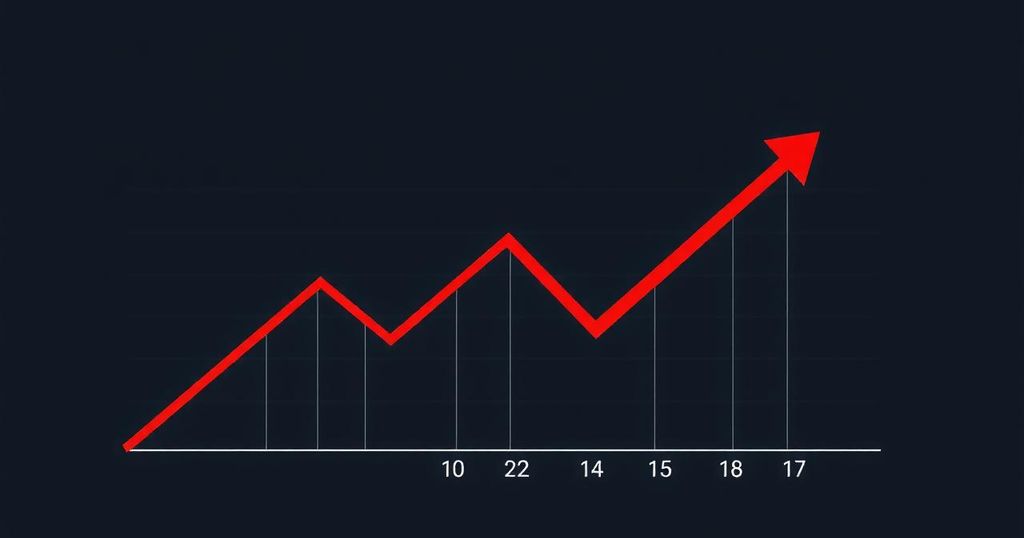Bitcoin Falls Below $95,000 Amid Federal Reserve’s Cautious Outlook
Bitcoin’s price fell below $92,000 due to Federal Reserve announcements signaling limited interest rate cuts amid rising inflation concerns. The downturn reflects a broader trend affecting major cryptocurrencies, with additional implications for investor sentiment and regulatory discussions concerning cryptocurrency ownership.
On Friday morning, Bitcoin’s value fell to below $92,000 amidst market reactions following the Federal Reserve’s recent announcements regarding interest rate cuts. Early trading reflected a price of $94,104.06, a decline of approximately 7.7% over the previous day and more than 10% since highs of over $106,000 earlier in the week. Other major cryptocurrencies, such as Ether, Solana, and Cardano, also experienced significant losses, reflecting a wider trend in the digital asset market.
The losses are attributed to the Federal Open Market Committee’s decision to lower the federal funds rate by a quarter point, moving it to a range of 4.25% to 4.50%. Despite lower rates traditionally fostering a favorable environment for investments,including cryptocurrencies, the market’s response has been adverse due to increasing inflation concerns. Fed Chair Jerome Powell indicated a more cautious strategy moving forward, with only two potential rate reductions expected in 2025, contrasting earlier projections.
In terms of inflation outlook, the Federal Reserve now expects a headline inflation rate of 2.4% and core inflation of 2.8%, marking an upward revision. Such inflation forecasts could amplify economic uncertainty and shift investor sentiment from riskier assets like Bitcoin to more secure options such as Treasury notes.
In an additional commentary, Powell dismissed the prospects of a Bitcoin reserve as proposed by President-elect Donald Trump, emphasizing the Federal Reserve’s restrictions regarding cryptocurrency ownership. Trump, having positioned himself as a proponent of the crypto space, has suggested various initiatives, including federal mining of Bitcoin and appointment of a cryptocurrency advocate to lead the SEC.
Overall, Bitcoin’s continued struggle below $95,000 amid shifting monetary policy and inflation concerns highlights the complex interplay between market sentiment, regulatory environments, and the evolving cryptocurrency landscape.
Bitcoin, a primary digital cryptocurrency, has been closely monitored by investors and economists due to its volatility and potential implications for the wider financial market. This recent downturn follows a period of significant price increases, which can be influenced by monetary policy decisions made by the Federal Reserve. Interest rate cuts are usually seen as beneficial for markets; however, growing concerns about inflation and the Fed’s cautious stance have created an environment that is currently unfavorable for riskier assets like Bitcoin. Moreover, regulatory discussions regarding cryptocurrency policies continue to shape investment sentiment.
The decline in Bitcoin’s value below $95,000, alongside other cryptocurrencies, underscores the intricate relationship between Federal Reserve policies, inflation concerns, and market dynamics. As central bankers tighten their focus on inflation, riskier assets like Bitcoin may face continued scrutiny from investors. The implications of these changes will likely extend into the broader cryptocurrency market as stakeholders navigate economic uncertainties and regulatory challenges moving forward.
Original Source: qz.com








Post Comment